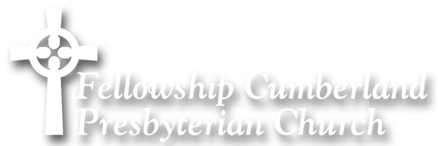Who are Cumberland Presbyterians?
Roots
We are a member of the Presbyterian and Reformed family of churches. Our roots go back to the Presbyterian beginnings in Switzerland and Scotland.
Distinct Accent
We have a distinct accent, life and ministry; and though similar, we differ from the Christian Reform Church, Presbyterian Church USA, the Reformed Church of America, the Presbyterian Church of America, the Associate Reformed Presbyterian Church and like denominations.
Christian Growth
Beginning Christians are like babes in Christ - they have only just been born. All Christians need to grow continually throughout their years in the capacity to receive God’s grace, and in the ability to live the Christian life.
We are Presbyterian in government rather than Congregational, or Episcopal. Our units of government are: session, presbytery, synod, and general assembly. We are a connectional Church, related on all levels. As congregations we are related to the whole.
We were the first Presbyterian body to ordain women for the ministry. This began in the late 1800s. We also ordain women as church officers.
Background
Cumberland Presbyterians came out of the old Presbyterian Church, February 4, 1810, on the American frontier, as the result of differences over theology, ministerial education, methods of ministry, and the Great Revival of 1800.
Practically 100 years later (1906), a union with the Presbyterian Church USA was consummated. The majority of our congregations, institutions, missions, and ministers conformed to this action. At the time, we were the third largest Presbyterian body in the nation.
A sizable minority took action to continue our identity as Cumberland Presbyterians. The Church went through a long period of rebuilding.
Size
We are a denomination with less than 100,000 members, serving in 19 states, with a concentration of congregations in Kentucky and Tennessee. We have congregations in Hong Kong, Columbia, Japan, and Liberia. We have 784 congregations. The majority of parishes are small and medium membership churches. We have fewer large congregations.
Big Program
The denomination, though small, has become a vital, creative, outreaching, and loyal steward of its mission. We maintain a program far out of proportion to our size.
Ministerial Education
We hold and insist upon adherence to a high standard of education for ministers, though careful exemptions are made for practical purposes.
Ecumenical
We are ecumenical, relating to and working with other communions in the local community and beyond; such as: World Alliance of Reformed Churches, Cooperative Publication Assoc., The Association of Presbyterian Church Educators, World Vision, Coalition for Appalachian Ministry (CAM), and Commission on Religion in America (CORA).
We maintain a significant communication and working relationship with the Cumberland Presbyterian Church in America.
Worship
We are non-liturgical, with no officially prescribed liturgy. This freedom of worship allows for a variety of patterns and practices, both formal and informal. A Directory for Worship is provided in the Confession of Faith as resource. (See below for Sacraments). The Book of Common Worship was jointly produced by our Church and the PCUSA.
Social Concerns
The Cumberland Presbyterian faith has implications for works. There is a growing sense of environmental and social responsibility in the denomination. This is reflected in the 1984 Confession of Faith, and the General Assembly’s Commission on Theology and Social Concerns. The Church attempts to speak to changing needs and problems related to society.
Theological Position
Modified Calvinism
Our theology has been referred to as “Medium” - somewhere between Calvinism and Armenian-ism.
Moderate to Middle-of-the-Road
We do not run to extremes, nor are we fanatic in theology, attitudes, or practices.
Diversity
Members reflect many denominational and theological backgrounds and concepts. We are tolerant and acceptive of different notions. We are not dogmatic. However, we have an official creed in our Confession of Faith to which we require loyalty on the part of ministers and church officers. It is a guide for instruction and for publications.
Evangelical
We are evangelical. We believe salvation comes through faith in Jesus Christ and that we have been commissioned to preach this good news to all the world.
A Mixture of Traditionalism and Openness
We attempt to conserve established traditions while at the same time we try to adapt our methods and message to the present day.
